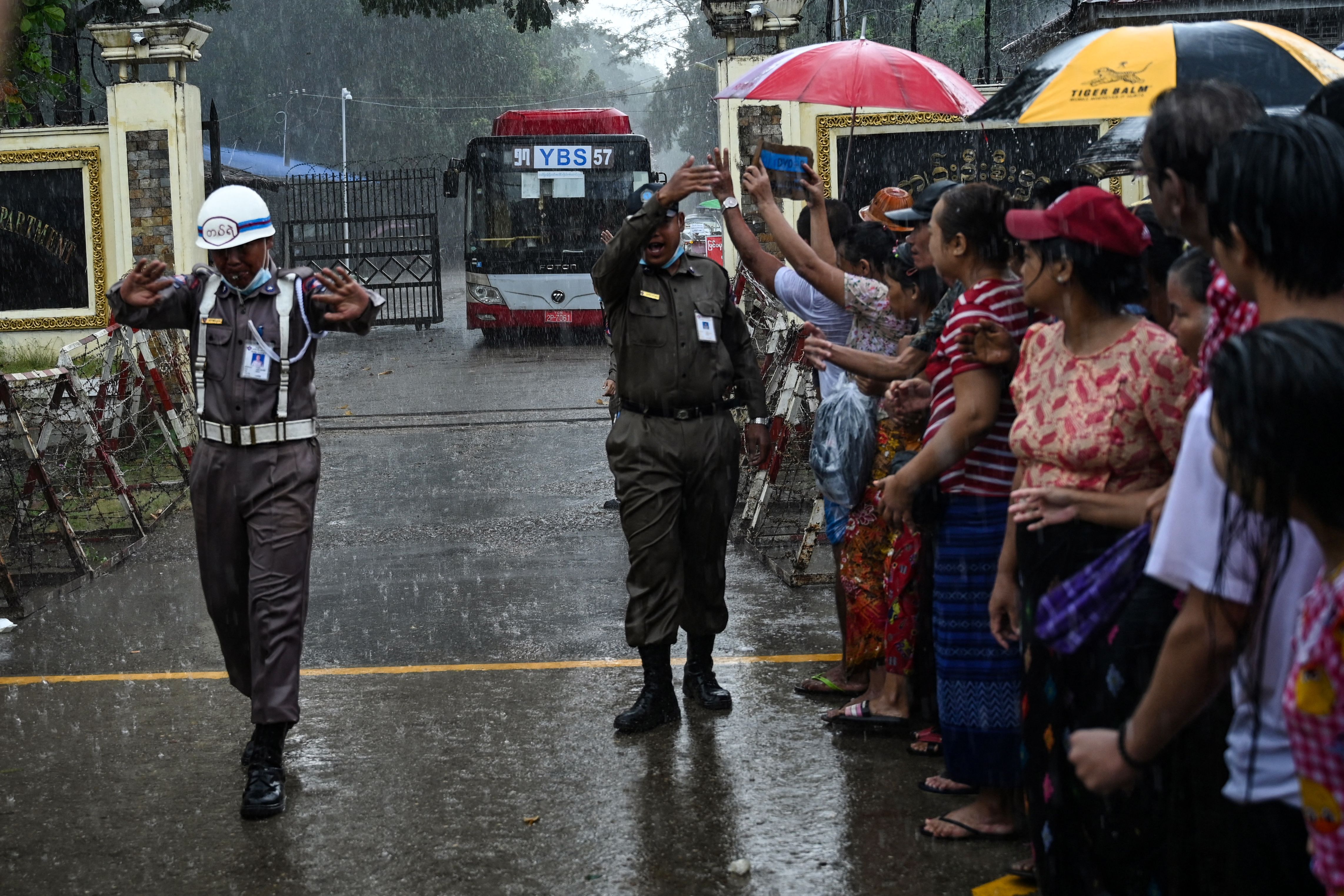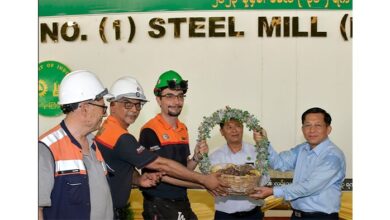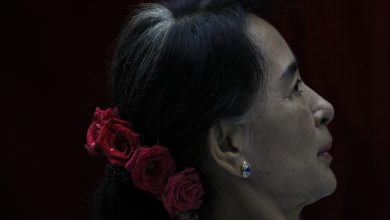
The rain was coming down heavily in Yangon on Thursday afternoon, but it did little to deter the crowds that had gathered outside of the city’s Insein Prison to greet inmates as they were released as part of a general amnesty announced earlier in the day. In a country that has seen more than its fair share of doom and gloom in recent years, it would take more than a downpour to dampen this rare moment of elation.
It was indeed a happy occasion. Among the nearly 5,800 freed were a number of political prisoners, including some who had been in the clutches of Myanmar’s junta from the day the military seized power more than 21 months ago. Some were outspoken critics of the regime, while others were figures close to the ousted government. Most released on Thursday, however, were ordinary convicts.
International attention was largely focussed on a handful of high-profile foreign prisoners, including Australian economist Sean Turnell and former UK ambassador Vicky Bowman. They and two others—Japanese filmmaker Toru Kubota and US national Kyaw Htay Oo—were deported soon after their release.
In Myanmar, however, all eyes were on prisoners like Mya Aye, a veteran of the 1988 pro-democracy uprising, and Shwe Nya Wah Sayadaw, a senior monk known to be a strong supporter of the ousted ruling party, the National League for Democracy (NLD). Both were among the first to be taken away in the early hours of February 1, 2021 by a regime that feared their ability to rally resistance to its rule.
The crowd in front of Insein Prison was jubilant as the two staunch defenders of democracy emerged from behind bars looking strong and healthy, but both refrained from saying anything likely to provoke their erstwhile jailers.
“I will always be with the people of Myanmar,” remarked Mya Aye simply, saying all that he needed to say to let the public know where his loyalties still stood.
Like many other political detainees released yesterday, Mya Aye and Shwe Nya Wah Sayadaw, as well as a number of NLD officials, were due to be released after serving their two-year jail terms for incitement, regardless of the amnesty.
According to its announcement on Thursday morning, the junta declared the amnesty as a “humanitarian” gesture to mark Myanmar’s National Day. But as more than a million people remain homeless around the country due to the military’s murderous rampages, few found the regime’s professed benevolence very convincing.
Since seizing power, the junta has killed thousands of Myanmar citizens and imprisoned tens of thousands more. Following previous amnesties, many released prisoners were rearrested under new charges, compounding the cruelty of their treatment by a regime that routinely tortures its opponents, often to death.
In fact, this latest amnesty can only be seen as a cynical attempt to deflect attention from the ongoing horror story that is Myanmar under military rule. It is surely no coincidence that it came as world leaders were gathering in neighbouring Thailand for the Asia-Pacific Economic Cooperation summit that begins today in Bangkok.
None of this is new in Myanmar, a country that has been run by the military for most of its post-independence history. Political prisoners are seen as bargaining chips, and even when they are released to gain some advantage for the junta, their continued safety and freedom are never assured.
The current regime knows that the people of Myanmar are struggling to cope with the hardships that it has imposed on them. Meanwhile, the rest of the world remains distracted by the war in Ukraine and other major challenges that threaten global stability. The junta may be hoping, then, that even an empty display of goodwill will go a long way toward winning a degree of international acceptance.
Speaking at a press conference in Bangkok, US Secretary of State Antony Blinken welcomed news of the amnesty as “one bright spot in what is otherwise an incredibly dark time” for a country that stands out as especially hard hit by suffering, even amidst all the other misery engulfing the world today.
He was not wrong to welcome this development, but hopefully he and other leaders won’t be fooled into believing that this is anything like a signal that Myanmar’s regime is prepared to soften its approach towards its opponents.
If there is one thing that the country’s people can be sure of, it is that nothing short of an end to military rule will improve their prospects for a better future. And this is something that the rest of the world must also understand.



